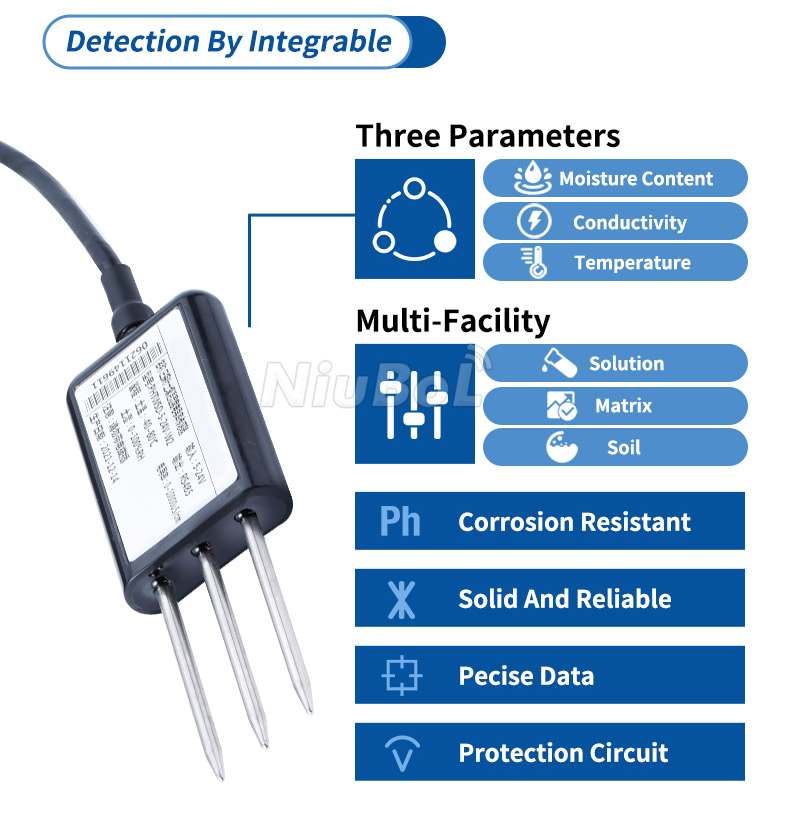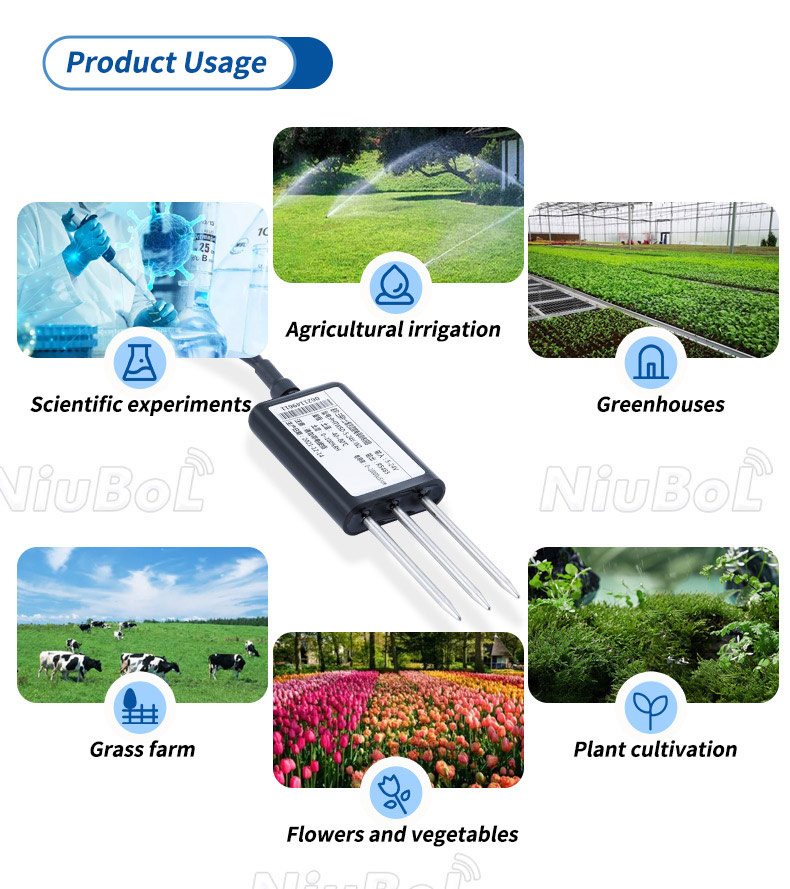

— Blogs —
—Products—
 Consumer hotline +8618073152920
Consumer hotline +8618073152920 WhatsApp:+8615367865107
Address:Room 102, District D, Houhu Industrial Park, Yuelu District, Changsha City, Hunan Province, China
Product knowledge
Time:2022-05-18 20:26:44 Popularity:673
Humidity sensor working principle
Moisture sensitive elements are the simplest humidity sensors. There are two main types of moisture-sensitive elements: resistive and capacitive. Moisture sensitive resistors are characterized by a film made of moisture-sensitive material covering the substrate. When water vapor in the air is adsorbed on the moisture-sensitive film, the resistivity and resistance value of the element change, and humidity can be measured using this feature. Moisture-sensitive capacitors are generally made of polymer film capacitors, and commonly used polymer materials include polystyrene, polyimide, and caseinate acetate. When the ambient humidity changes, the dielectric constant of the moisture-sensitive capacitor changes, causing its capacitance to change as well, and the amount of capacitance change is proportional to the relative humidity.
Humidity sensor precautions
Humidity sensors are non-sealed and should be avoided in acidic, alkaline and organic solvent containing atmospheres in order to protect the accuracy and stability of the measurement. Also avoid using in dusty environments. To correctly reflect the humidity of the space to be measured, the sensor should also be avoided to be placed too close to the wall or in a dead corner where there is no air circulation. If the room to be measured is too large, more than one sensor should be placed.

Some humidity sensors have high power supply requirements, otherwise it will affect the measurement accuracy. Or the sensors interfere with each other, or even can not work. The use of technology should be required to provide a suitable, in line with the accuracy of the power supply requirements.
When the sensor needs to carry out long-distance signal transmission, pay attention to the signal attenuation problem. When the transmission distance of more than 200m, it is recommended to use the frequency output signal humidity sensor.

Due to the existence of a certain dispersion of moisture-sensitive components, whether imported or domestic sensors are required to debug and calibrate one by one. Most of the wet-sensitive components need to be replaced after the re-commissioning calibration, especially important for the measurement of high precision humidity sensors.
Humidity sensors are now being widely used, humidity sensors can be very good monitoring of the humidity in the environment, in food protection, environmental testing and other important applications, we should fully understand the structure of the humidity sensor when using the humidity sensor has been in the process of using some attention.
Humidity sensor is not a lot of forms, but no matter what kind of humidity sensor in the use of the process or to pay attention to the above details, not only humidity sensor all sensors in the use of the process have its cautions, we should first read the instruction manual has been and the manufacturer to consult the relevant issues, in order to better use.
Related recommendations
Sensors & Weather Stations Catalog
Agriculture Sensors and Weather Stations Catalog-NiuBoL.pdf
Weather Stations Catalog-NiuBoL.pdf
Related products
 Combined air temperature and relative humidity sensor
Combined air temperature and relative humidity sensor Soil Moisture Temperature sensor for irrigation
Soil Moisture Temperature sensor for irrigation Soil pH sensor RS485 soil Testing instrument soil ph meter for agriculture
Soil pH sensor RS485 soil Testing instrument soil ph meter for agriculture Wind Speed sensor Output Modbus/RS485/Analog/0-5V/4-20mA
Wind Speed sensor Output Modbus/RS485/Analog/0-5V/4-20mA Tipping bucket rain gauge for weather monitoring auto rainfall sensor RS485/Outdoor/stainless steel
Tipping bucket rain gauge for weather monitoring auto rainfall sensor RS485/Outdoor/stainless steel Pyranometer Solar Radiation Sensor 4-20mA/RS485
Pyranometer Solar Radiation Sensor 4-20mA/RS485
Screenshot, WhatsApp to identify the QR code
WhatsApp number:+8615367865107
(Click on WhatsApp to copy and add friends)